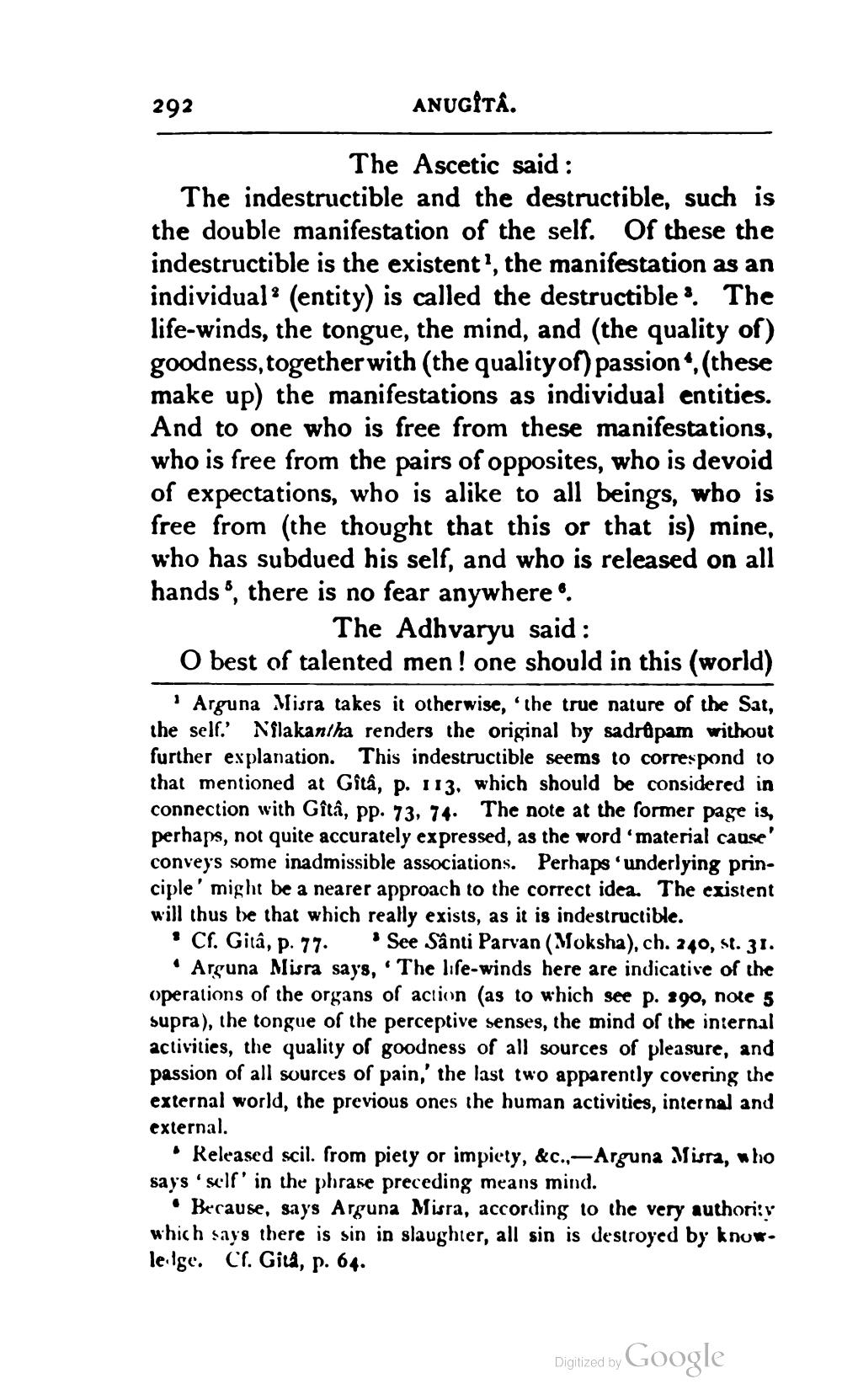________________
292
ANUGITA.
The Ascetic said: The indestructible and the destructible, such is the double manifestation of the self. Of these the indestructible is the existent', the manifestation as an individual' (entity) is called the destructible : The life-winds, the tongue, the mind, and (the quality of) goodness, together with (the quality of) passion* (these make up) the manifestations as individual entities. And to one who is free from these manifestations, who is free from the pairs of opposites, who is devoid of expectations, who is alike to all beings, who is free from the thought that this or that is) mine, who has subdued his self, and who is released on all hands", there is no fear anywhere.
The Adhvaryu said: O best of talented men! one should in this (world) · Arguna Misra takes it otherwise, the true nature of the Sat, the sell. Nilakantha renders the original hy saditipam without further explanation. This indestructible seems to correspond to that mentioned at Gitá, p. 113, which should be considered in connection with Gîtâ, pp. 73, 74. The note at the former page is, perhaps, not quite accurately expressed, as the word 'material cause' conveys some inadmissible associations. Perhaps underlying principle' might be a nearer approach to the correct idea. The existent will thus be that which really exists, as it is indestructible.
• Cf. Gita, P. 11. ^ See Sân Parvan (Moksha), chủ đạo, st. 3.
• Arguna Misra says, “The life-winds here are indicative of the operations of the organs of action as to which see p. 390, nove 5 supra), the tongue of the perceptive senses, the mind of the internal activities, the quality of goodness of all sources of pleasure, and passion of all sources of pain,' the last two apparently covering the external world, the previous ones the human activities, internal and external.
Released scil. from piety or impiety, &c.,- Arguna Misra, who says 'self' in the phrase preceding means mind.
• Because, says Arguna Misra, according to the very authority which says there is sin in slaughter, all sin is destroyed by knur. le:Ige. Cf. Gita, p. 64.
Digitized by Google




